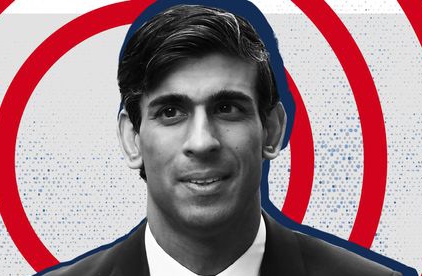
Here are the key points from Chancellor Rishi Sunak's budget speech:
Here are the key points from Chancellor Rishi Sunak's budget speech:
• Economy expected to return to pre-COVID levels by the middle of next year, six months earlier than previously thought
• GDP growth forecast for this year downgraded to 4% (from 5.5%), according to the Office for Budget Responsibility
• Unemployment expected to peak at 6.5%
• Forecasts show government borrowing reaching £355bn in 2020/21, 17% of the national income - the highest level since the Second World War. For 2021-22 it climbs to £234bn, 10.3% of GDP
• Debt is set to peak at 97.1% of GDP in 2023-24
• An additional £65bn in spending in response to coronavirus takes total fiscal support to £407bn
• £1.6bn will go towards continuing the vaccine rollout and improving future preparedness
• Chancellor confirms furlough scheme will be extended until the end of September, with the government paying 80% of salary - though employers will be asked to put in 10% from July and 20% from August
• Help for the self-employed will also be extended with changes meaning 600,000 more people will be eligible
• The temporary increase of £20 a week in universal credit will continue for a further six months
• There will also be a one-off payment of £500 to working tax credit claimants
• Bounce-back and other coronavirus loans for businesses will be replaced by a new recovery loan scheme, 80% guaranteed by the government
• Companies will be able to offset losses against their tax bills going back up to three years, allowing them to claim additional refunds of up to £760,000
• There will be a review of the current 8% bank surcharge to make sure they do not have to pay too much and that the sector "remains internationally competitive"
• Incentive payments for hiring new apprentices are being doubled to £3,000 while £126m will be invested to triple the number of new traineeships
• A "help to grow" scheme will offer smaller businesses management and digital training
• The business rates holiday for retail, hospitality and leisure sector firms has been extended to the end of June and for the remaining nine months of the fiscal year they will still be discounted by up to two-thirds
• Reduced rate of 5% VAT for the hospitality and tourism sectors has been extended to the end of September, and will only go up to 12.5% after that, before returning to 20% next April
• The chancellor confirms £5bn of new grants for hard-hit firms - worth up to £6,000 for non-essential retailers and £18,000 for restaurants, pubs, personal care and gym businesses which will reopen later
• The stamp duty holiday on properties worth up to £500,000 will be extended from the end of March until the end of June and after that there will still be no duty on homes worth up to £250,000 for another three months. After that the threshold returns to the usual level of £125,000 from October
• Mr Sunak confirms that the government will guarantee 95% mortgages to help those who can only afford a 5% deposit
• Personal income tax thresholds will be frozen from next year until 2026 - at £12,570 for the basic rate and at £50,270 for the higher rate - dragging more people into paying as their salaries rise in line with inflation
• Thresholds for inheritance tax, pensions lifetime allowance and capital gains tax thresholds are also being frozen
• Corporation tax is to increase to 25% in April 2023 - but it will still be the lowest rate in the G7, says the chancellor. However 70% of companies - with profits of £50,000 or less - will still only be liable for the current 19% rate, while only those with profits of £250,000 or more will pay the full 25%
• Planned increases in duties on beer, cider, spirits and wine - as well as fuel - will be cancelled
• A "super-deduction" to incentivise business investment will mean they can reduce their taxable income by 130% of the amount they invest
• The first ever UK Infrastructure Bank will be set up, in Leeds, with an initial capitalisation of £12bn - to finance public and private sector "green industrial revolution" projects
• Eight freeports - special economic zones with different rules to make it cheaper and easier to do businesses - have been announced at: East Midlands airport; Felixstowe and Harwich; Humber; Liverpool city region; Plymouth; Solent; Thames; and Teesside
• Visa reforms are being introduced to make it easier to attract the "best and most promising international talent" in science, research and tech
• Rules will also be changed to allow pension funds to plough billions into innovative new ventures and, in line with a review by Lord Hill, to encourage more companies to float in London
• Consumers will be able to put their money into a new savings product to support green projects
• A new group will be set up to position the City as the global leader for carbon offset markets
• The Bank of England's remit will be updated "to reflect the importance of environmental sustainability and the transition to net zero" as well as the 2% inflation target
• A total of £700m will go on supporting arts, culture and sports as they reopen
• A £150m fund will help communities take ownership of pubs, theatres, shops or local sports clubs at risk of being lost
OTHER ANNOUNCEMENTS
• The Treasury and other key economic departments will set up a new economic campus in Darlington
• There will be £1bn for 45 new public investment "town deals" across the country
• To tackle fraud in COVID support schemes there will be £100m to set up an HMRC taskforce with 1,000 investigators
• An extra £19m has been announced for domestic violence programmes while £10m will support veterans with mental health needs
• There will be £40m for victims of the Thalidomide scandal and a lifetime commitment to support them
• Under a national spending formula, the budget will mean £1.2bn more for the devolved administration in Scotland, £740m for Wales and £410m for Northern Ireland

© Sky News 2021


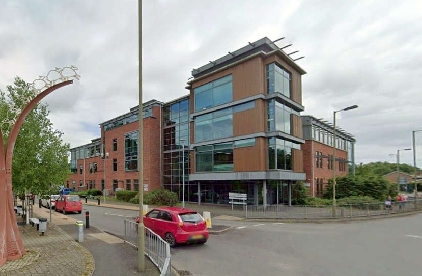 Social landlord plans staff cuts
Social landlord plans staff cuts
 Lake View Nursery to receive a special award for supporting children's health
Lake View Nursery to receive a special award for supporting children's health
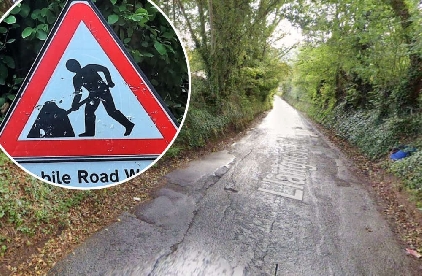 Herefordshire Council reveals six more roadworks closures
Herefordshire Council reveals six more roadworks closures
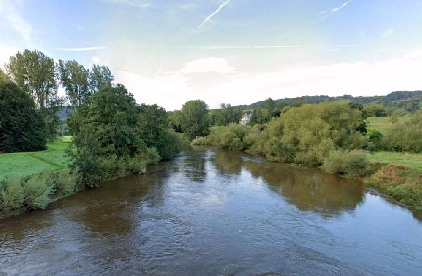 County’s top spots for sewage spills named
County’s top spots for sewage spills named
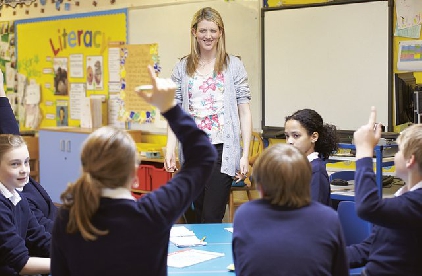 Herefordshire primary school places announced
Herefordshire primary school places announced
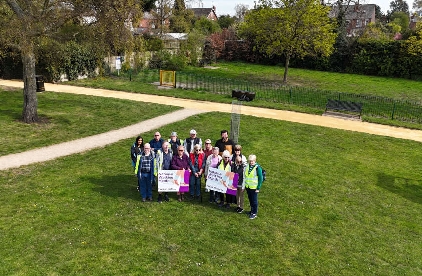 Get ready to walk this May and enjoy the 'Walk This May Challenge'
Get ready to walk this May and enjoy the 'Walk This May Challenge'
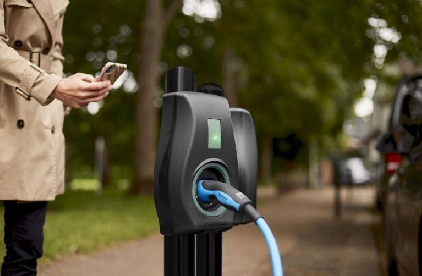 New EV charging points planned for Hereford, Leominster and Kington
New EV charging points planned for Hereford, Leominster and Kington
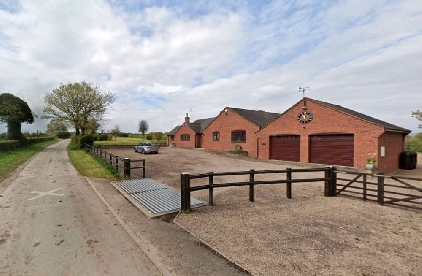 Non-farmers win fight to remove rule from house
Non-farmers win fight to remove rule from house

